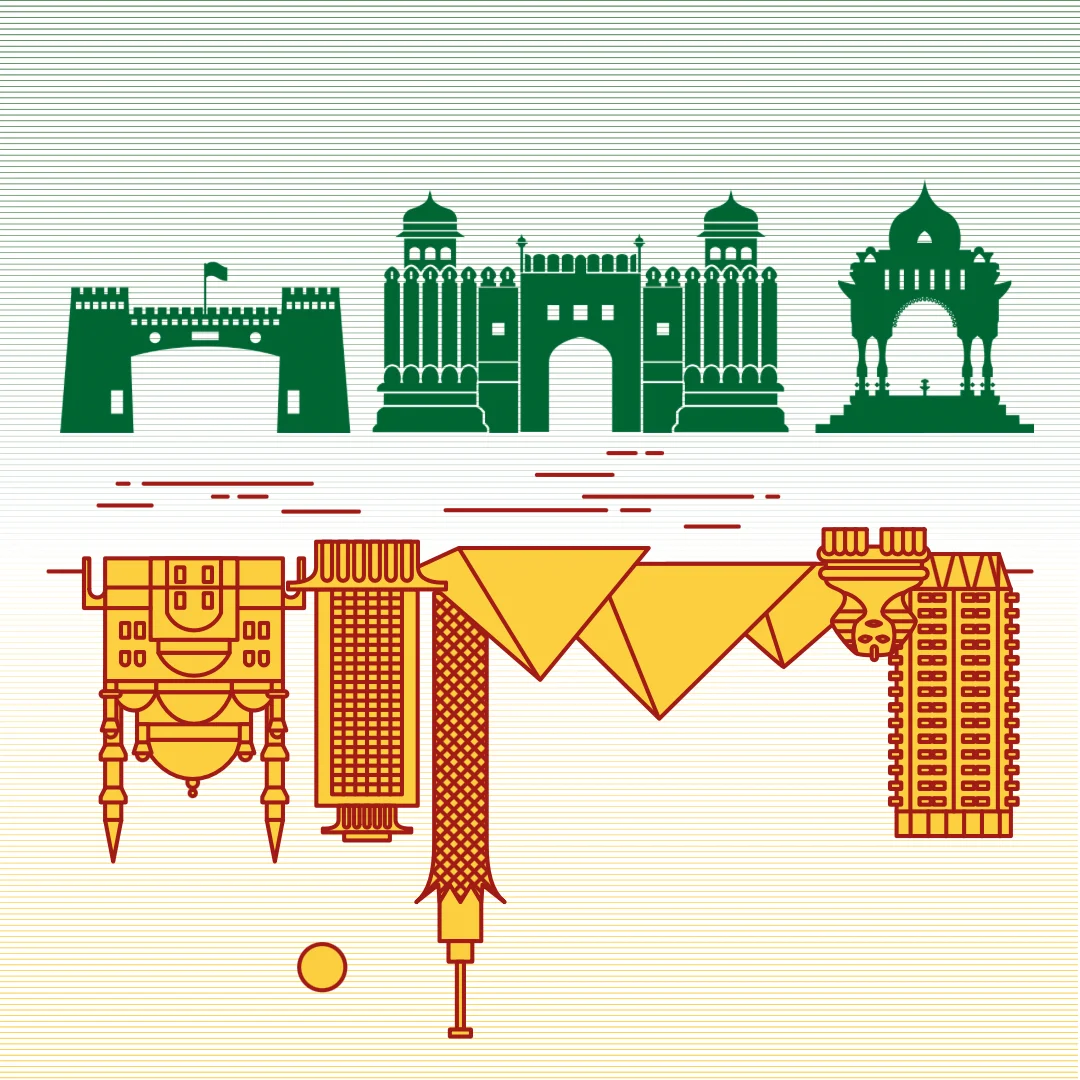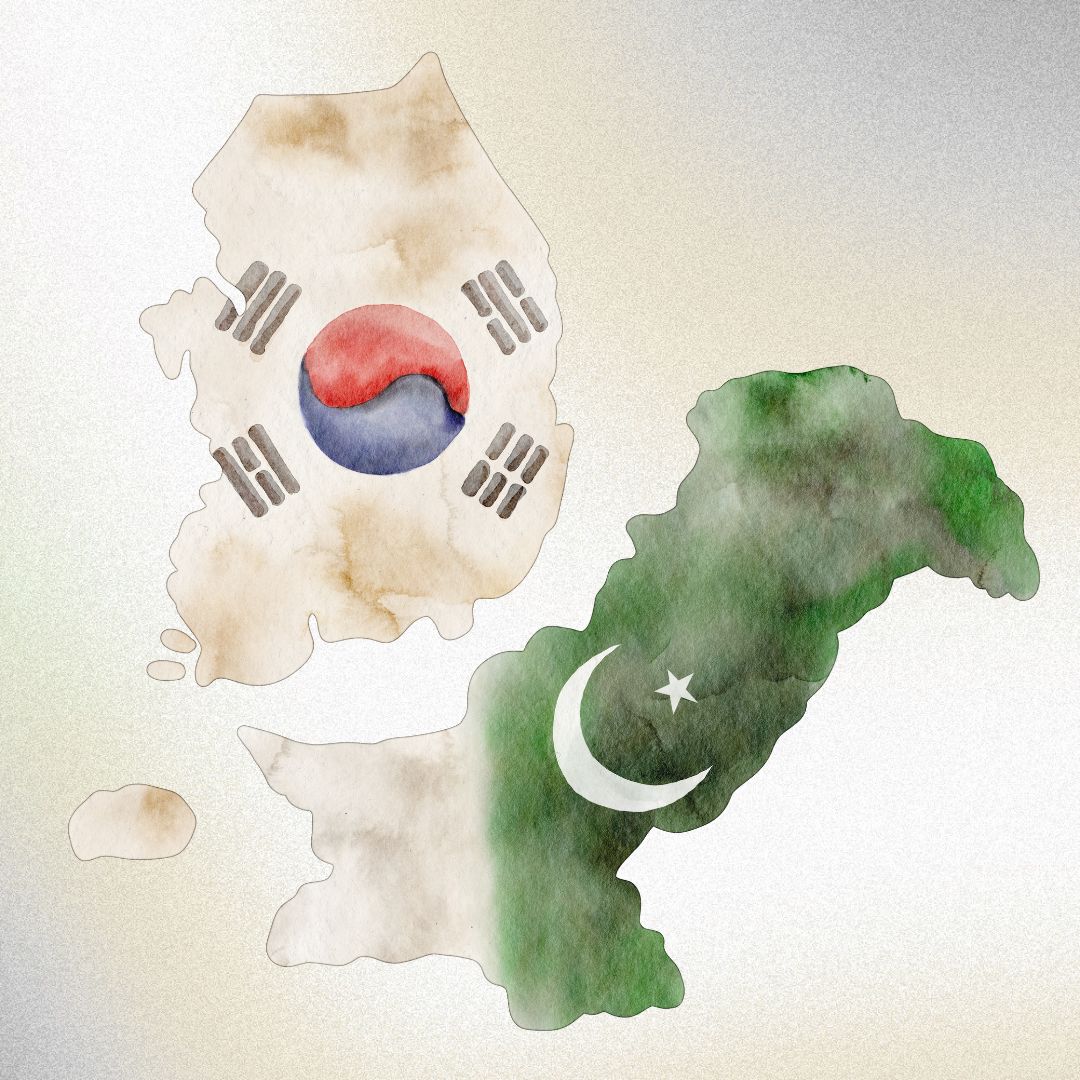It seems everyone is trying to understand the incomprehensible now, even across the border. There's a clearly LLM-generated analysis doing the rounds on “how Pakistanis weaponise humour online”, and hopefully, someone is proposing Pakistan’s meme generation to their PhD advisor as I write this. I recently thought of a quote that I’ve seen for most of my adult life, on billboards and on the placards; that classic Quaid-e-Azam quote: there is no power on earth that can undo Pakistan.* That’s it, I realised: the answer to why Pakistanis are making memes is that the country already came undone a long time ago, and now all we have left is this: the ability to make jokes so good that our entire timeline becomes one epic comedy roast.
What can you take from a country where the worst has happened, so many times over, in ways small, large, excruciatingly personal, and nation-changing? A country whose cricket team routinely wrests defeat from the jaws of a sure victory, a country where urban legends come to life, such as the dehydrated lion roaming Shahrah-e-Faisal while people do deadpan commentary in the background, in which Osman Samiuddin’s great treatise on haal makes sense, in a place where taxes squeeze the life out of the salaried class, in which a generation is now growing up amid laws so repressive that military rulers of times past would stand up and applaud them. What else is there to do but to rely on sardonic humour, humour that looks death in the face and goes, yeah, so? One of my favourite tweets (and there have been so many, including the outlandishly good mai phir draw karloonga (in response to a tweet that said: “time to erase Pakistan from the map”) was this one: “pani rok louge? wese hi nahi aata maar dou ge? humari govt maar hi rahi hai. lahore le lou ge? le lo adhay ghantay baad khud wapis ker jaoge.”
It is always a great surprise, to me, that anyone would ever want Karachi. Who would want our broken gems of cities, except us? When I was younger, one of the Pakistani television specials reenacting the ’65 war had a cartoonish caricature of an Indian officer, crowing how they would have breakfast at Lahore Gymkhana tomorrow. I never quite understood why this was supposed to be an achievement. As someone who has now had breakfast at the Gymkhana (as a guest, I can assure you I am just as welcome there as an invading army), I can tell you, it’s not worth fighting a war over.
The memes are because it is the only reaction that makes sense anymore. How else can you explain the surreal, bizarre visuals of this war; nothing like the imaginations of a Pakistan Studies textbook, nothing like the dramatic visuals that have been force-fed to us for decades. How can any joke compare to the sight of a Foodpanda driver going about in the midst of an aerial strike, or the man shooting at a drone in a field, and the people marvelling at the nazara. It is the completely absurd yet predictable sight of seeing Pakistanis running towards war, just like generations of Karachiites have fled to Seaview during a cyclone warning, instead of away from it. If humour seems baffling to others, it is because it is. You cannot disappoint a country that has been disappointed so many times over that cynicism is a pale pastiche of a word to describe its citizens’ state of mind. The humour is not resilience, or our ability to laugh at, or with ourselves, or a coping mechanism. It’s because it is who we have become, in that responses to situations are no longer serious or calibrated, that there is no place for shock, only shrugs, and the realisation that of course, the worst is happening.
To tell someone, ‘yes, there’s war, but the memes are great’ is a sentence so bizarre if you say it out loud — like I have many times, trying not to laugh— that it would rival the most bizarre prompt ever given to a fiction writing workshop. How do I explain why, in the midst of an actual war, I have spent several minutes doubled over in giggles at a photo of Karan Johar imposed over Millennium Mall in Karachi, titled Gulistan-e-Johar?
It has been completely surreal to see how quickly the government turned back the dial on Twitter / X, after insisting that the ban on Twitter was because of “national security” and “preserving the integrity of our nation.”** This “integrity” of Pakistan might just have been saved, momentarily, by the floodgates opening for memes, takedowns, quips, popular culture references churning up in record time. After essentially stifling conversation — let alone dissent — for months, it was as if the state almost sat back, like the uncle who is responsible for all of the problems in a family but pretends to be a saint, and said: beta, start sh**tposting. There was no way the government could have ever had young people, now, manufacture the defense of Pakistan after basically declaring them enemies, or come up with a cohesive narrative to a world that, frankly, does not care. Farieha Aziz cited the government’s response to the IHC last year, noting “How does a platform threaten national security and public order? How has its ban, yet use via VPNs, prevented this? What is so secret that has to be presented in a sealed envelope? Many claims are thrown around but answers to basic questions, there are none.” The answer is now, apparently, that when it comes to it, the government is totally willing to look the other way as long as it suits them, and that the response to “national security” is always going to be a great meme.
What would have been a response to war? This is not a generation roused by actors or musicians or war anthems — people see propaganda for what it is, because they have been inured and burnt far too many times. Of course a generation forged in internet culture would respond to this the way it has. In my previous column, bizarrely timed, I lamented about the history of memes, and expressed hope they are archived in museums now, because when these days of how Pakistanis responded to the events of May 2025 will be studied, what will remain will not be poems or essays (and thank God for it — if I had to see a bad poem like some of the wretched poetry that made the rounds during the Coronavirus pandemic, or whatever American liberals cite to make themselves feel better, I’d probably delete Instagram), but a carousel of memes.
It is probably worth noting that militancy doesn’t inspire the same reaction, that despite every shock and blow and batting side collapse thrown at Pakistan, people still retain the capacity to be shocked. Not everything is a joke; the memes are about the outlandishness of war, not death. Perhaps the spectre of war is outlandish to a generation who did not grow up in the 1990s, when we were told, night after night on the 9 p.m. news, of the many threats to the country: sanctions, war, politicians, democracy; the day we were told that it was worth eating daal and grass as long as we had nuclear weapons (food, healthcare, education can go take a hike), or the early 2000s, when it was about how were we going to respond to you’re with us or against us, to imagine someone out there who might want to decimate you. But perhaps what is really surprising is that a country rent apart by crisis after crisis of its own making would have to face something so otherworldly, so terrifying, that the only response is horrified laughter at the thought that anyone would want Lahore (or Gymkhana breakfast).
It would all be so sad if it wasn’t so very funny.
—
*there are only two to remember, the freedom of religion one, cited by liberals, or this. Unfortunately Jinnah never weighed in on biryani vs pulao, or Lahore vs Karachi which could have helped the internet wars a long time ago.
**with credit to Farieha Aziz’s piece on PTA’s ban on X: https://www.dawn.com/news/1828972





